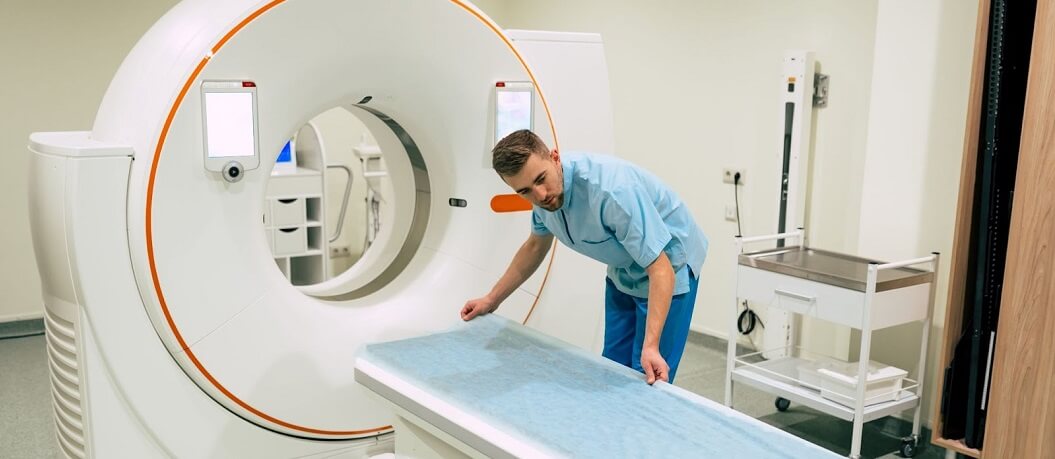Severe TBI can leave a victim unable to perform basic everyday tasks, but even a “mild” TBI can make life difficult for patients. Doctors have a variety of different types of brain injury tests they use to diagnose a TBI, which we’ll cover in this article.

A Florida traumatic brain injury attorney with Lytal, Reiter, Smith, Ivey & Fronrath will be here to help you obtain compensation if you’ve suffered this terrible injury due to another’s negligence. If you would like a free consultation, please call (561) 655-1990.
Initial tests for a TBI
If a doctor suspects that you’ve suffered a TBI, they will typically perform one of the following brain injury tests:
- Glasgow Coma Scale – This test is used to measure a person’s functioning in three key areas: their speaking, if they can open their eyes, and their movement or ability to move. This test is graded on a number scale – the higher the score, the less severe the TBI.
- CT (computerized tomography) scans – Medical personnel will perform a CT or “CAT” which is a series of X-rays that create a complete picture of the brain that can depict issues such as bleeding, bruises, blood clots, swelling, and more.
- MRI (magnetic resonance imaging) – An MRI is used for the same purpose as a CT scan, however, it uses magnets and radio waves to produce more detailed pictures of the brain. An MRI is more likely to be used in follow-up care because they take longer than a CT scan.
- EEG (electroencephalogram) – This test is performed by applying small electrodes to a patient’s scalp to detect electrical activity within the brain. An EEG is usually performed in conjunction with an MRI to see the brain’s functioning.
More advanced tests to diagnose TBI
There are some instances where more advanced brain injury tests are needed to determine what kind of damage to brain tissue might exist. The following are a few examples.
- DTI (diffusion tensor imaging) – A DTI is somewhat similar to an MRI, but it provides a more detailed look at the white fibers of brain matter through the diffusion of water molecules. It can track damage to the brain that may have occurred over a longer period of time.
- PET (positron emission technology) – PET procedure involves the injection of a radioactive substance, known as a tracer, to find the specific area of the brain that has been affected.
- SWI (susceptibility-weighted imaging) – This test is a form of MRI that provides a higher-resolution scan, and can detect microscopic bleeding and other damage that a regular MRI may not be able to find.
- Neuropsychological examination – This type of exam is typically performed while a patient is recovering in order to determine how much long-term damage may have been done.
Signs and symptoms of a TBI
The symptoms of a TBI will vary according to the severity of the injury. The following are some of the more common symptoms of each type of TBI.
Mild TBI symptoms
- Nausea and vomiting
- Dizziness
- Loss of balance
- Drowsiness or fatigue
- Headache
- Difficulty speaking
- Confusion or disorientation
- Difficulties with concentration and memory
- Temporary loss of consciousness
Moderate/severe TBI symptoms
- Pupil dilation
- Seizures or convulsions
- Coordination loss
- Severe headache
- Numbness or weakness in the toes and fingers
- Severe confusion
- Slurring words
- Unusual agitation
- Coma or prolonged loss of consciousness
Injured? Speak with an attorney from Lytal, Reiter, Smith, Ivey & Fronrath
A Florida traumatic brain injury attorney with Lytal, Reiter, Smith, Ivey & Fronrath is ready to tell you more about how we may be able to help you obtain full and fair compensation if any of the above brain injury tests confirm you have a TBI. Use our online form or call (561) 655-1990 for a free case review.



